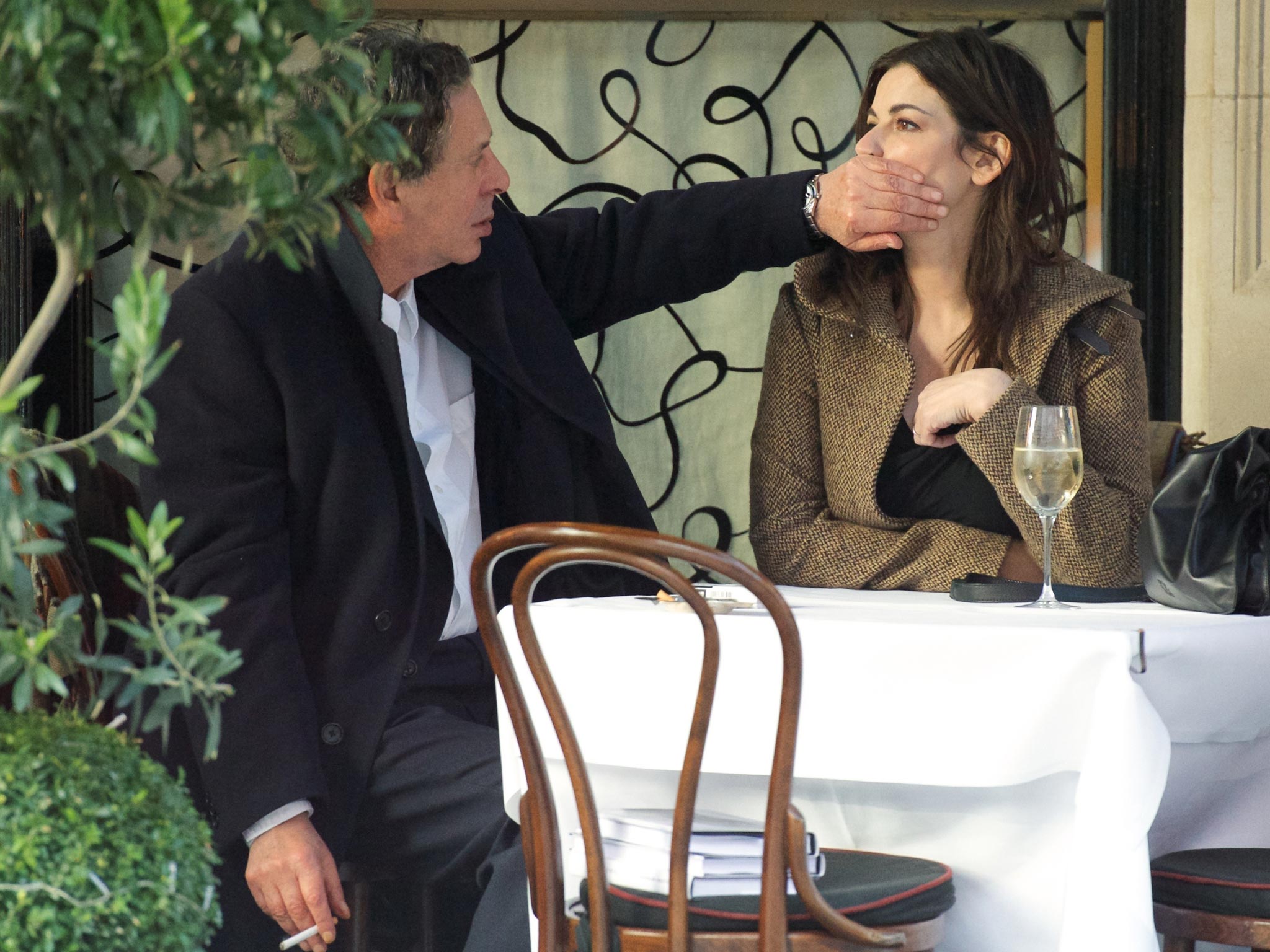Should we intervene? Our response to the Charles Saatchi and Nigella Lawson assault is shocking too
Events like this compel us to consider the ethics of recording a dispute

Your support helps us to tell the story
From reproductive rights to climate change to Big Tech, The Independent is on the ground when the story is developing. Whether it's investigating the financials of Elon Musk's pro-Trump PAC or producing our latest documentary, 'The A Word', which shines a light on the American women fighting for reproductive rights, we know how important it is to parse out the facts from the messaging.
At such a critical moment in US history, we need reporters on the ground. Your donation allows us to keep sending journalists to speak to both sides of the story.
The Independent is trusted by Americans across the entire political spectrum. And unlike many other quality news outlets, we choose not to lock Americans out of our reporting and analysis with paywalls. We believe quality journalism should be available to everyone, paid for by those who can afford it.
Your support makes all the difference.It was that comparative rarity these days: a genuinely shocking and compelling tabloid splash. The pictures of Nigella Lawson apparently having her throat gripped, and her nose pinched, by her husband had the key constituent parts of a strong red top story: famous people, inappropriate behaviour in public; and it made you feel uncomfortable looking at it.
Amid a weekend busy with stories of genuine global importance, the Sunday People managed to make an impression on the news agenda. Twitter shuddered and spasmed with discussion and criticism, and the story has been reverberating through the media on Monday. Charles Saatchi (Mr Nigella Lawson) has made matters worse, by referring to the incident as a “playful tiff”, saying he was touching her neck just to emphasise his point. Scarcely a sound argument.
But this is about more than just a set of opportunistic images, snatched in a sufficiently public spot to quieten Trinity Mirror's legal team ahead of publication. Our collective reaction is fascinating, and the ethical aspects of our own relationship to the photos should be pushed to the fore.
Some of our response comes from the sheer incongruity of what we are seeing. Nigella has maintained a carefully-marketed status as domestic goddess: serene and commanding on her TV programmes, those montages of artfully-choreographed kitchen romps with family members ever-prominent. We associate her with an ideal of strong femininity; she is portrayed as a deity of home and hearth. These photos represent a disturbing antithesis of how we have been conditioned to consider Nigella.
So we feel unsettled as an audience because we are shocked. We may also have that standard reaction to stories about the personal lives of others: guilt at being complicit in an intrusion. A violent argument between husband and wife is a matter for them, some may muse; it is none of our business; and we should not stick our noses in.
And yet. The other ethical dilemma inherent in this story comes from the very lack of any intervention at all. A woman was apparently assaulted in a public place (an exclusive restaurant, but the regular lair of the wealthy, the ostentatious and the publicity-driven), and nobody stepped in. Indeed, the only reaction was simply to take photographs.
There is a legitimate debate to be had about what members of society should do when confronted by violence or bullying. Our newly evolved impulse is to record and capture, not to act. We have become passive as a matter of course, not active participants. If we recall the atrocity in Woolwich, we are struck by two competing reactions from those on the street in London that day: those heroic women who tended the fallen man; and those who took out their phones and recorded the manic protestations of those allegedly responsible for the killing.
Now, there is not necessarily a simple moral judgement to be made. It is important for us to record what happens, so we can learn how to respond in future. But, sometimes our passive complicity puts us in an awkward position, ethically. When we buy the newspaper or (more likely) gawp online, we enact the same process as the casual bystander in Scott's restaurant: we linger to the side and watch unacceptable behaviour, and do nothing about it.
It is, obviously, too late for anybody seeing the pictures of Nigella Lawson to step in and alter the situation. But we can collectively respond to them in an ethical way. While the follow-up in rival newspapers may be prurient, and interested only in the exciting prospect of a celebrity suffering a public trauma, the spike in interest enables us all to think about the insidiousness of domestic violence and how we deal with it, and to how we respond as citizens to inappropriate behaviour happening in our midst.
In the end, we all have an interest in acting to help either one victim or a group of victims. If we can, we should walk across the room to help someone in distress. If we cannot do that, the next best thing is to do is to use well-documented incidents to raise the profile of the issue itself. We should not be passive about these photos, but make sure we (even now) do something about them.
Join our commenting forum
Join thought-provoking conversations, follow other Independent readers and see their replies
Comments